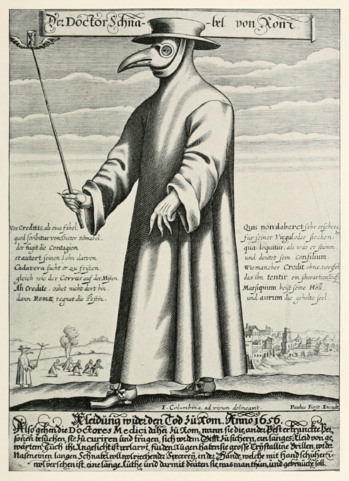2016 has drawn to a close, leaving us to look back with fond nostalgia to the halcyon days of 2010 and 2011 when the worst thing we had to worry about was Greek debt, the possible collapse of the E.U. and inter-species pandemics. However out of adversity great ideas, art, businesses and people are often born. One inspirational example of this is Isaac Newton’s so-called “Annus Mirabilis” in 1666. Except for the calamity of nuclear war, nothing we might face in 2017 really compares to what the people of England were actually up against in 1666.
After fighting a civil war from 1642 to 1651, culminating in the execution of their king Charles I they lived from then until 1658 under the military/religious dictatorship of Oliver Cromwell. Cromwell undertook genocidal wars against his subjects in Scotland and Ireland (and who also had the dubious honour of being postumously executed during the restoration of Charles II a few years later). Then in 1665 the Bubonic Plague broke out in London, killing 100,000 people (a quarter of the city’s population) over an 18 month period. Then in 1666 great swathes of London were burned to the ground in the “great fire” which consumed over 13,000 houses which housed 70,000 of the city’s remaining inhabitants. During this time the English were at war with the Dutch as the two countries vied to become the pre-eminent naval power in the world. Looming over all of these events was the belief, held by some people in this very religious age, who interpreted the book of revelation to mean that the world would end in 1666.

Newton hadn’t exactly had an easy time of it personally, either. Born prematurely on Christmas Day 1642, 3 months after his father (also named Isaac) had died, Newton was raised in very meager circumstances by his grandparents after his mother re-married when he was 3. Between 12 and 17 he was taught Latin, Greek and Mathematics at The King’s School in Grantham. At the age of 17 (1659) his mother tried to force him to become a farmer. He hated farming, and fortunately for Newton and many branches of science and mathematics he instead went to Trinity College in Cambridge on the recommendation of his uncle. When Cambridge closed in 1665 as a precaution against the spread of the plague Newton was an undistinguished student who had just completed his B.A. degree.
Year of Miracles
Against the backdrop of this adversity, over the next 20 months at the family home in Woolsthorpe Newton made a number of amazing discoveries. He discovered the general binomial series which led him to an infinite series for integrals of algebraic functions. He studied motion and laid the foundations for calculus, applying it to problems concerning tangents, arc length, curvature, centres of gravity and quadrature (integrals). He refracted light through a crystal prism, showing that white light was made up of a mixture of coloured rays. He observed an apple falling from a tree and wondered.
“why should that apple always descend perpendicularly to the ground, why should it not go sideways, or upwards? but constantly to the earths center? assuredly, the reason is, that the earth draws it. there must be a drawing power in matter. & the sum of the drawing power in the matter of the earth must be in the earths center, not in any side of the earth. therefore dos this apple fall perpendicularly, or toward the center. if matter thus draws matter; it must be in proportion of its quantity. therefore the apple draws the earth, as well as the earth draws the apple.
These inquiries eventually lead to his universal theory of gravitation, and the formulation of the inverse-square law that describes it.
Nearly 50 years later he wrote:
All this was in the two palgue years of 1665-1666. For in those days I was in the prime of my age for invention and minded Mathematics and Philosophy more than at any time since.
It is impossible to know what the future holds, but I draw great comfort from the knowledge that these difficult times bore such amazing fruit.
Image Credit Avalokitesvara